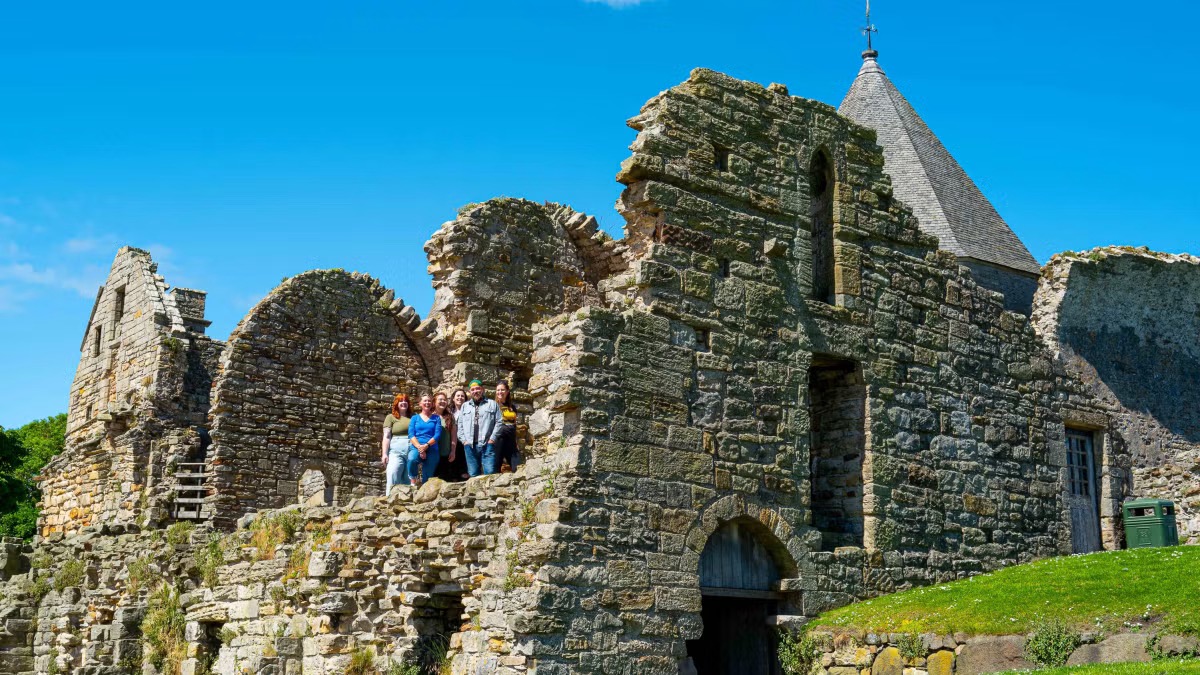This post reflects on the author’s experience conducting research in Scottish archives, describing the surreal joy of working with centuries-old documents. It offers advice for graduate researchers, emphasizing the importance of taking breaks, recognizing when to shift focus and accepting the challenges of finding original sources. The author encourages balancing the stresses of research with the opportunity to enjoy the local environment and culture.
By Alyssa Zimmerman
Researching in Scottish archives was a dream come true. Sitting at a desk while holding a 150-year-old document is a surreal experience. I have never felt so content with my education and future as I did in those moments. Though, despite the joy this brought me, there were a few aspects that I needed to grasp before this occasion. It is important to recognize that research at any point is stressful in its own right – whether it is performed online or in person in a foreign country. This is amplified when a student moves from undergraduate to graduate work. Within your graduate studies, you are expected to find a topic and accept what it tells you or, sometimes, what it does not. This is different from undergraduate research, where you are usually given a topic and told to find the sources to defend it. With this, it is important to accept that the sources are correct early on. Here are a few key reminders for when you are up to your neck in documents and frustrated with the contents:

If you are struggling, take a break and try again.
If you are feeling stressed, realize it is okay to cry. Sometimes finding your sources, or the right type of sources, is difficult. It is okay to feel overwhelmed and it is okay to feel like you are struggling. Just remember to take a break when this happens. Grab some water and a snack then reread your document. Most of the time, if you look at a work with fresh eyes, you can digest the information more thoroughly. Take a breath and give yourself a break.
If the frustration continues, look somewhere else.
If you repeatedly reread a fact, event or theory, that probably means it has been researched and written about many times. In these cases, it is better to shift lenses to find a new focus. It can be hard to add original information into a discussion like that because of how overdone the topic is. That is not to deter you from a topic you love. Just recognize what you can honestly add to a historical discussion.
If you are confused, ask yourself why.
If you are sitting there stumped for one reason or another, ask yourself why. Are you confused because you are struggling to understand the social context of the document? Are you confused as to why you can not seem to locate other sources similar to the one you have? These issues might just lead you to your research question. It is through these gaps in information that you can see what needs to be added to the discussion.
If you are short on time, know your limit.
If you are given a deadline, respect it. There are thousands of fun, interesting and important research projects out there — but you need to know your limitations given your circumstances. Do not bite off more than you can chew because that could set you up for failure. Find a topic that you enjoy, but make sure you have the resources and time to successfully complete it.
Researching in a setting like this is an opportunity you may not get again; so have fun and enjoy it. Yes, there could be other times where you, as an individual, are in Europe researching in other archives, but the atmosphere created through this course is invaluable. Make the most of your time and enjoy the culture, food and people. Use the resources that are available and enjoy the learning experience!

